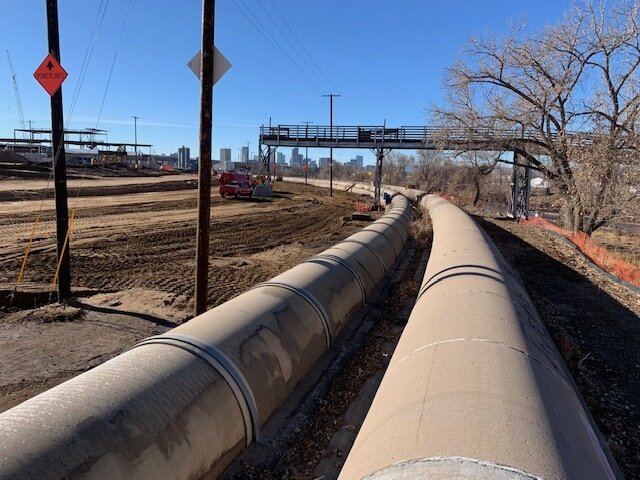
Celebrating Metro’s Engineers
Running Sunday, February 18th through Saturday, February 24th, National Engineers Week is a unique celebration of engineering professions. The week aims to:
- Recognize how engineers make a difference in our world
- Add to the conversation about the need for engineers, technicians, and technologists
- Engage students in engineering
The week is hosted by the National Society of Professional Engineers. Since Metro relies on the expertise of many engineers to help us accomplish our important mission, we’re featuring two of Metro’s finest.

Renee Paplow, Principal Permitting Engineer
Having served Metro for an incredible 18 years, Renee supports Metro staff with the permitting processes for many engineering projects, both large and small.
Renee brings strengths in communication, collaboration, and relationship building, vital skills for the permitting process.
“We’re providing support for critical infrastructure and there’s so many ways we can do that as engineers,” Renee reflects. “My path here at Metro focuses on the permitting and planning side of engineering.”
Renee led the permitting efforts for several landmark projects for Metro, including the Northern Treatment Plant in Brighton, the South Platte Interceptor, and the new Second Creek Interceptor, which is slated to go online in summer 2024.
“Engineering is broad enough that you can support a wide range of needs and projects. It’s a diverse career path and you can make it your own,” Renee adds.

Christine Geier, Senior Engineer Electrical Instrumentation & Control (I&C)
Hailing from Colorado, Christine has served Metro for 9 years. Her focus, electrical power, is dedicated to supporting the electrical requirements for major projects at Metro.
Through reliable and robust electrical systems, Metro is able to power our mission as we recover roughly 138 million gallons of wastewater per day (MGD). “During design, we review documents and make sure projects conform to our standards,” Christine adds. “Since a lot of our work involves working with existing infrastructure, we make sure that we have the capacity to make connections.”
Christine has proudly served on a wide range of projects at Metro over the years. “As an electrical engineer, you can get a job doing a lot of different things. But what I like is that this work benefits the environment,” she reflects. The South Headworks improvements project, completed in 2019, replaced aging infrastructure at Robert W. Hite Treatment Facility (RWHTF) to help Metro process grease collected during the treatment process.
Christine is also supporting an important project that will bring transmission-level power to Metro’s RWHTF. Currently under construction, transmission-level power will help prevent power outages and allow Metro to meet current and future power needs through 2035.
If you like learning how things work, you like building things, and you need somewhere to channel your attention to detail, then engineering might be for you. “My high school physics teacher said […] ‘Scientists like learning things for knowledge’s sake and engineers like learning things to do something with what they know.’ And I thought, ‘That sounds cool!’ From that moment on, I wanted to be an engineer.”
If you’re interested in an engineering career, Christine has some important advice: yes, you can do it! “Don’t get intimidated by people telling you that engineering is difficult. You’ll do just fine and it’s worth the effort you put into it.”
